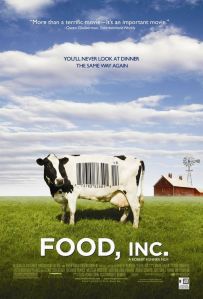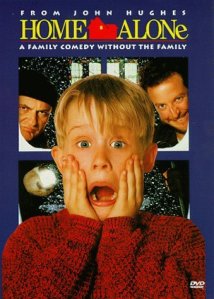Film:
Blue Gold: World Water Wars, 2008
Synopsis (from the film’s homepage):
In every corner of the globe, we are polluting, diverting, pumping, and wasting our limited supply of fresh water at an expediential level as population and technology grows. The rampant overdevelopment of agriculture, housing and industry increase the demands for fresh water well beyond the finite supply, resulting in the desertification of the earth.
Corporate giants force developing countries to privatize their water supply for profit. Wall Street investors target desalination and mass bulk water export schemes. Corrupt governments use water for economic and political gain. Military control of water emerges and a new geo-political map and power structure forms, setting the stage for world water wars.
We follow numerous worldwide examples of people fighting for their basic right to water, from court cases to violent revolutions to U.N. conventions to revised constitutions to local protests at grade schools. As Maude Barlow proclaims, “This is our revolution, this is our war”. A line is crossed as water becomes a commodity. Will we survive?
My Thoughts:
In the whole world there is nothing softer and weaker than water.
And yet nothing measures up to it
In the way it works upon that which is hard.
Nothing can change it.
Everyone on earth knows
That the weak conquers the strong
And the soft conquers the hard —
But no one is capable of acting accordingly.
~Tao Te Ching, II:68
Watch this film now. It is available on Netflix Instant, through iTunes, or Amazon On Demand. Humans need fresh water. Without it we will die. Yet water is increasingly being treated as a commodity, privatized, and being controlled by water cartels. Why are we giving away water only to have it sold back to us? We are using our groundwater faster than we can replace it. It takes 24 gallons to make one microchip. 117 gallons to make a banana. This is a global problem. It’s effecting agriculture, development, global warming. There are corporations that make money cleaning up pollution and therefore don’t want to prevent it.
This is an ethical, moral, and social problem. Until we recognize that we are a united world, that water unites us but as it becomes scarce if we don’t work together we will end up fighting. Already water scarcity has effected the West Bank issue. It’s effected the relationship between Egypt and Sudan. And in Bolivia and in Tamil Nadu… yet often these resource wars are presented as religious or ethnic wars. (To see a map of water conflicts click here)
Everyone needs water and water is central to life, regardless of race or faith. The hydrological cycle connects us all. There are reasons that throughout the Holy Writings of every religion that water is used as a spiritual metaphor due to its power in this world.
Jesus answered, “Truly, truly, I say to you, unless one is born of water and the Spirit, he cannot enter the kingdom of God. ~ John 3:5
When in the Gospels, Christ speaks of ‘water’, He means that which causes life, for without water no worldly creature can live—mineral, vegetable, animal and man, one and all, depend upon water for their very being. ~ ‘Abdu’l-Bahá
O servants! Ye are even as saplings in a garden, which are near to perishing for want of water. Wherefore, revive your souls with the heavenly water that is raining down from the clouds of divine bounty. ~ Bahá’u’lláh
As a lotus flower is born in water, grows in water and rises out of water to stand above it unsoiled, so I, born in the world, raised in the world having overcome the world, live unsoiled by the world ~ The Buddha
We need to come together to solve this water problem by recognizing each others humanity. In order to become ‘unsoiled’ we must work together, live more sustainably, and overcome the greed that leads to abuse of water use. Please meditate on what you can do and the choices you can make to help us deal with the growing problem of water.











 The Day After Tomorrow
The Day After Tomorrow



